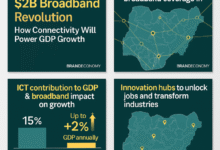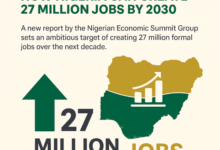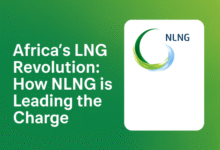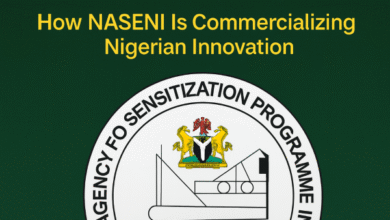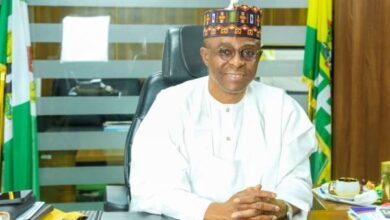Tinubu to NNPCL Board: “Deliver Nigeria’s Oil and Gas Turnaround or Go Home”

In what can be best described as a defining charge to the nation’s apex energy institution, President Bola Tinubu has issued a clear mandate to the newly inaugurated board of the Nigerian National Petroleum Company Limited (NNPCL): “Turn the economy around—or go home.”
At the inauguration held at the State House, Abuja, President Tinubu delivered what oil industry insiders are already calling a “boardroom mission statement” aimed at reengineering the NNPCL as a central engine for Nigeria’s economic transformation.
“You represent the very best this industry can offer,” Tinubu declared. “It took time to carefully select this NNPCL team, and now that you are in place, the expectation is performance. You have the reputation, resourcefulness, and experience to unlock Nigeria’s energy future.”
NNPCL: From National Oil Giant to Global Energy Game-Changer?
The President’s charge comes at a critical juncture when the NNPCL—now a commercially driven limited liability company under the Petroleum Industry Act (PIA)—is grappling with legacy inefficiencies, upstream output volatility, refinery turnaround delays, and a global energy transition that continues to challenge the very fundamentals of fossil fuel reliance.
Yet, with Nigeria’s oil production climbing modestly from 1.5 million barrels per day (mbpd) to 1.7 mbpd, and a projected 1.9 mbpd target before year-end, the Tinubu administration appears determined to reframe the national oil company from a bureaucratic dinosaur into a global energy performer.
“We will promise only what we can deliver—and we will deliver on our promise,” said Bashir Ojulari, Group Chief Executive Officer of NNPCL, underscoring the company’s operational recalibration under the new board.
Ojulari revealed that the new management team has kicked off a sweeping stakeholder engagement effort, initiated bi-weekly strategic meetings, and begun retooling core business operations—including a renewed push on refinery maintenance and upstream asset optimisation.
Heineken’s Bold Statement: No More Excuses
Minister of State for Petroleum Resources (Oil), Heineken Lokpobiri, offered a moment of levity and gravity when he referenced the regional and global interest in the reconstituted NNPCL board.
“My colleagues across Africa and OPEC said if this team fails to deliver, we’ll have to import managers from another planet to fix Nigeria’s oil sector,” he said.
The joke may have landed with a smile, but the message was unmistakable: failure is no longer an option.
Strategic Expectations: Performance Over Promises
The reconstitution of the NNPCL board is expected to serve as a catalyst for broader sector-wide transformation—from deregulated downstream markets to local refining capacity, gas commercialisation, upstream JV restructurings, and FDI attraction.
President Tinubu, whose broader economic reforms have won applause from multilateral institutions and financial markets, underscored the importance of energy stability and reform as the foundation of Nigeria’s broader economic recovery agenda.
“The global economy is volatile. We must look inward and reposition the NNPCL to serve as an anchor of resilience and innovation,” Tinubu urged. “Explore every option for a win-win scenario for Nigeria.”
BRANDECONOMY INSIGHT: What This Means for the Industry
- Commercial Realignment: With the PIA pushing NNPCL into a fully commercial posture, expect aggressive moves toward cost-efficiency, asset divestitures, and capital market engagement.
- Upstream Focus: Increasing crude output remains a core priority, but rising global ESG standards mean Nigeria must also deepen investment in gas monetisation and cleaner fuel technologies.
- Downstream Reform: The slow resurrection of the refineries and the move towards market-reflective fuel pricing are key barometers that will test both the board’s mettle and Tinubu’s resolve.
- Foreign Investor Confidence: The President’s emphasis on governance, credibility, and commercial discipline is aimed at sending a signal to global investors: Nigeria is open for serious energy business.
Outlook: From Oil Laggard to Energy Leader?
The weight of history—and expectation—now rests heavily on the NNPCL board’s shoulders. If this team delivers, Nigeria’s oil and gas sector could finally pivot from being a cautionary tale of missed opportunities to a masterclass in energy reinvention.
But if it stumbles, the consequences could set back the Tinubu reform agenda and Nigeria’s energy competitiveness for another decade.
As the President put it succinctly: “With this team in place, I can relax and attend to other matters.” For the rest of Nigeria, the time for energy excuses is over.
Follow BRANDECONOMY for exclusive deep dives, boardroom intelligence, and investor briefings on Nigeria’s energy evolution.



